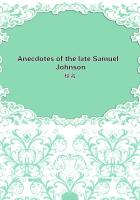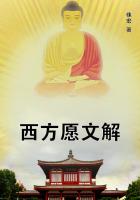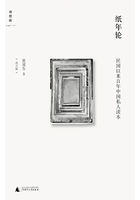Now in the economic commune it is precisely social needs which are coming to the forefront; and so will it really hasten to take advantage, to the fullest possible extent, of the above-mentioned union of agriculture and industry? Will Herr Dühring not fail to tell us, at his accustomed length, his "more exact conceptions" {343} on the attitude of the economic commune to this question? The reader who expected him not to would be cruelly disillusioned. The above-mentioned meagre, stale commonplaces, once again not passing beyond the schnaps-distilling and beet-sugar****** sphere of the jurisdiction of Prussian law, are all that Herr Dühring has to say on the antithesis between town and country in the present and in the future.
Let us pass on to the division of labour in detail. Here Herr Dühring is a little "more exact". He speaks of "a person who has to devote himself exclusively to one form of occupation" {D. C. 257}. If the point at issue is the introduction of a new branch of production, the problem simply hinges on whether a certain number of entities , who are to devote themselves to the production of one single article , can somehow be provided with the consumption (!) they require {278}. In the socialitarian system no branch of production would " require many people ", and there, too, there would be " economic species " of men "distinguished by their way of life"{329}.
Accordingly, within the sphere of production everything remains much the same as before. In society up to now, however, an "erroneous division of labour" {327} has obtained, but as to what this is, and by what it is to be replaced in the economic commune, we are only told:
"With regard to the division of labour itself, we have already said above that this question can be considered settled as soon as account is taken of the various natural conditions and personal capabilities" {259}.
In addition to capabilities, personal likings are taken into account:
"The pleasure felt in rising to types of activity which involve additional capabilities and training would depend exclusively on the inclination felt for the occupation in question and on the joy produced in the exercise of precisely this and no other thing" {D. Ph. 283} (exercise of a thing!).
And this will stimulate competition within the socialitarian system, so that "production itself will become interesting, and the dull pursuit of it, which sees in it nothing but a means of earning, will no longer put its heavy imprint on conditions" {D. C. 265}.
In every society in which production has developed spontaneously -- and our present society is of this type -- the situation is not that the producers control the means of production, but that the means of production control the producers. In such a society each new lever of production is necessarily transformed into a new means for the subjection of the producers to the means of production. This is most of all true of that lever of production which, prior to the introduction of modern industry, was by far the most powerful -- the division of labour. The first great division of labour, the separation of town and country, condemned the rural population to thousands of years of mental torpidity, and the people of the towns each to subjection to his own individual trade. It destroyed the basis of the intellectual development of the former and the physical development of the latter. When the peasant appropriates his land, and the townsman his trade, the land appropriates the peasant and the trade the townsman to the very same extent.
In the division of labour, man is also divided. All other physical and mental faculties are sacrificed to the development of one single activity.
This stunting of man grows in the same measure as the division of labour, which attains its highest development in manufacture. Manufacture splits up each trade into its separate partial operations, allots each of these to an individual labourer as his life calling, and thus chains him for life to a particular detail function and a particular tool. "It converts the labourer into a crippled monstrosity, by forcing his detail dexterity at the expense of a world of productive capabilities and instincts... The individual himself is made the automatic motor of a fractional operation"(Marx) -- a motor which in many cases is perfected only by literally crippling the labourer physically and mentally. The machinery of modern industry degrades the labourer from a machine to the mere appendage of a machine.
"The life-long speciality of handling one and the same tool, now becomes the life-long speciality of serving one and the same machine. Machinery is put to a wrong use, with the object of transforming the workman, from his very childhood, into a part of a detail-machine" (Marx). And not only the labourers but also the classes directly or indirectly exploiting the labourers are made subject, through the division of labour, to the tool of their function: the empty-minded bourgeois to his own capital and his own insane craving for profits; the lawyer to his fossilised legal conceptions, which dominate him as an independent power; the "educated classes" in general to their manifold species of local narrow-mindedness and one-sidedness, to their own physical and mental short-sightedness, to their stunted growth due to their narrow specialised education and their being chained for life to this specialised activity -- even when this specialised activity is merely to do nothing.
The utopians were already perfectly clear in their minds as to the effects of the division of labour, the stunting on the one hand of the labourer, and on the other of the labour function, which is restricted to the lifelong uniform mechanical repetition of one and the same operation.















